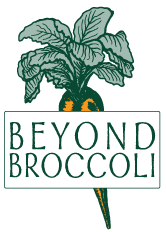I hear some version of this sentiment frequently from clients who struggle with their weight. Sometimes clients struggle with some form of eating disorder that involves binge or compulsive overeating but many times there is no diagnosis (at least not a formal one). They truly believe their excess weight is the result of some kind of character flaw, such as low willpower or an unusual fondness for food. Or perhaps they are addicted to food in general –or more commonly to carbs or sugar in particular.
The reality is that love often has little or nothing to do with our eating and weight problems, at least not in the ways we think it does. We can love food—arguably an important survival skill, but struggle with other aspects of our relationship with food. Food cravings or a feeling that we can’t stop once we begin eating certain foods may be confused with love. Unfortunately, like many of our primal relationships, we are not encouraged to delve too deeply into what is really happening because we should just automatically do the right thing. I mean we are all born knowing how to eat, right?!
With rare exceptions related to developmental problems, yes, we are all born knowing how to eat. We are even born generally knowing what to eat as well as when we are hungry and how much food we need. However, once we transition from breast milk or baby formula things can get complicated with food. We begin to rely on external cues to tell us all of these things related to eating. We eat when it is meal or snack time. Our parents or caregivers put food on our plates, largely choosing what we eat, and coax us to eat it all. I’m dating myself here but as kids many of us were expected to aspire to the “Clean Plate Club,” apparently in solidarity with starving children in Africa who weren’t as lucky as we were in the food department.
As young, inexperienced eaters it makes sense that our families and caregivers select which foods are available to us and schedule meals and snacks. The problems arise when kids are cajoled to eat beyond satiety or fullness. After many years of eating when, what, and how much we are “supposed to” eat according to external forces, we can lose touch with our ability to recognize early signs of hunger and fullness. When portion sizes are determined by others (moms, chefs, packages, diet rules, food pyramids, etc.) we don’t pay much attention to our fullness unless we still feel hungry or are overly full after eating. What we eat is based on all kinds of factors and there are many foods we are coached to eat sparingly or avoid altogether.
Foods that are considered “bad” become weapons with which we beat ourselves up when our eating doesn’t conform to what we’ve been told we “should” eat. When we eat “perfectly” (note the quotations because there is no such thing as a perfect diet) we are somehow elevated in status. When we eat well we are “good” and when we don’t we are “bad.” Adhering to some arbitrary set of dietary rules becomes a measure of us as people. Who we are is linked to what we eat –or don’t eat. Crazy isn’t it?!
Circling back to where I started, when we accept the idea that we should never eat certain foods, we set ourselves up to feel deprived. Sometimes we deprive ourselves of adequate calories or certain nutrients that we believe will make us fat (or not help us lose weight). The lack of enough food or a nutritional imbalance can lead to food cravings. This is particularly common with low carbohydrate diets, especially for people who have high levels of physical activity.
Other times we get enough calories but we don’t allow ourselves to eat foods we enjoy so we become fixated on these foods. When we finally have an opportunity to eat the forbidden foods we naturally want to eat a lot of them and may feel out-of-control around them. In these two scenarios we set ourselves up either biologically or psychologically to eat particular foods and/or amounts of food that feel (and may in fact be) excessive. This type of eating is then followed by guilt for not following our food rules, and shame for being flawed people who lack willpower or suffer from a food addiction.
Admittedly the topic of food addiction is complicated. I realize there is compelling research that shows sugar and highly addictive drugs like cocaine can light up the same areas of our brains—of course so do other rewarding behaviors like sex and exercise. Clearly, eating and abusing drugs are very different behaviors however. Labeling food problems as “addiction” creates the illusion that we know how to treat these problems: rigid abstinence.
After 15 years of clinical experience and extensive education and training related to dysfunctional eating and eating disorders, it is clear to me that we must treat eating problems individually. There is no single protocol that works for every person. Also, despite the progress we have made as a society in recognizing that addictions are not choices, there is still a considerable amount of stigma attached to any kind of mental illness, including addictions. So, even if labeling food and eating problems as “addictions” is accurate (which it may or may not be), it is not necessarily helpful.
What is helpful when we believe we “love food too much” or are in some way addicted to food?
First, we can start by pretending we don’t know what the heck is going on. Instead of assuming we understand our problems, we can be more curious about them. We approach our eating habits with the series of questions we would use to explore anything we didn’t know much about: what, when, where, why, how?
“Curiosity will conquer fear even more than bravery will.” –James Stephens
Instead of immediately berating ourselves for eating that cookie or choosing a burger and not a salad, we can ask some questions. When was my last meal? Was I overly hungry when I arrived at the table? Was I frustrated with a situation at work and looking for something comforting? Did I eat quickly which made it hard to know when I was full (it takes our brain about 20 minutes to get the signal we’ve had enough)? Was I in a place where the burgers are awesome and the salads not as good? Am I sick of so many food rules and ready for something tasty and easy at the end of a long day? Many of my clients find the acronym HALT helpful to identify why they feel uncomfortable– am I: Hungry, Angry, Lonely or Tired?
There is much more we can do to unravel problems related to food and weight, however replacing assumptions that we are somehow flawed or cursed, with curiosity about what else may be going on in our complex relationship with food (and ourselves) is a good place to start.




